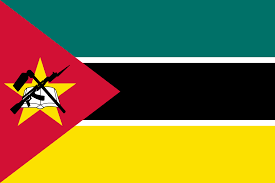The governing parties in Botswana and Mozambique each retained their majorities in recent elections, despite predictions they would not have it their own way.
The Botswana Democratic Party (BDP) won 38 of the 57 elected seats in that country’s Parliament, while in Mozambique the Mozambican Liberation Front (Frelimo) won over three quarters of the vote.
In Botswana, the BDP was widely expected to lose its majority for the first time, having governed the country since independence in 1966. In the country’s previous election, the BDP’s proportion of the vote dipped below 50% for the first time. However, the first-past-the-post system used to elect parliamentarians meant they still managed to secure a fairly comfortable 37 of the 57 seats up for grabs. In last week’s election, however, the BDP saw its share of the vote edge up to nearly 53%, and it gained a seat. The BDP’s biggest challenger was the Umbrella for Democratic Change (UDC), but it won only 15 seats, a decline of three from the previous election.
The Botswana Patriotic Front, which had the support of former President Ian Khama, won three seats, with the Alliance for Progressives winning the remaining seat.
The BDP’s victory was attributed to President Mokgweetsi Masisi, who managed to secure strong BDP support in urban areas, where the party had traditionally struggled.
Things were different in Mozambique, where the governing Frelimo won over three quarters of the vote. Mozambique also directly elects its President and the incumbent, Filipe Nyusi, won a similar majority in the presidential poll. The Mozambican National Resistance (Renamo), Frelimo’s long-time rival, won less than 17% of the vote, its worst result yet. The Democratic Movement of Mozambique won just under five percent of the vote, with no other party breaching the one-percent barrier.
Renamo fought a civil war with Frelimo between 1975 and 1992. Another insurgency was fought between it and the Mozambican government from 2013, with a peace accord only being signed earlier this year.
Renamo said the elections were flawed and called on Mozambicans to reject the results. It is too early to tell whether the results will be accepted or if post-election violence will occur.

